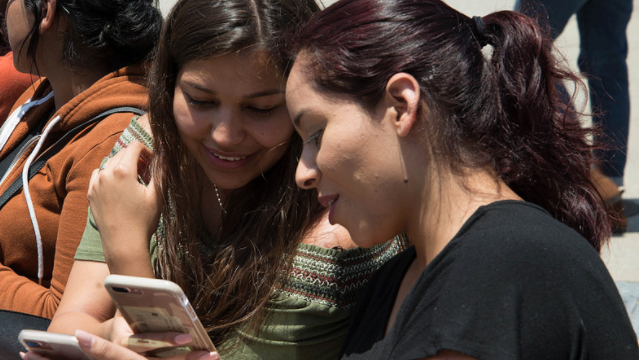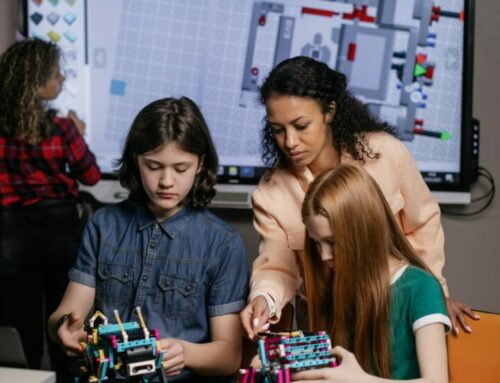Redirecting 21st century student success
Elena Garcia Ansani
College Access, Equity, Student Success Consultant
A recent Pew Research Center report indicated high school drop-out rates for Hispanic/Latino students in the U.S. were at a record low of 12% (Krogstad, 2016). It also indicated 34% of Hispanics/Latinos between the ages of 18 to 24 are enrolled in higher education institutions. This increased enrollment rate set a new precedent for Hispanics/Latinos seeking degree attainment in America. Nationwide, college completion rates for Hispanics/Latinos are reported to be at 15%. Complete College America determined college completion rates for Latinos in Illinois, which boasts the fifth largest Latino growing population in the U.S., to be 7% for Latinos in comparison to 74% for white students.
These gaps have been persistent for decades. They are societal dilemmas that have become challenges for social entrepreneurs from public and private sectors who are working effectively to develop 21st century solutions. These issues prompted the framework for the Student Success Scholarship (SSS) program implemented during my leadership at a Latino nonprofit organization (LNPO) and the SSS case study conducted between 2013-2016. The findings highlighted community college completion rates for 66% of the SSS recipients enrolled in community colleges. The SSS program’s mission driven effort to increase Latino college completion rates with measurable outcomes exemplified solutions for redirecting student success outcomes.
The highly competitive SSS program was designed to identify applicants whose exemplary record for academic excellence, civic engagement, leadership and financial need made them eligible for awards. SSS recipients were subsequently invited to join members of the LNPO community at networking luncheons, leadership events, conferences, one-on-one meetings as well as being honored annually at the LNPO leadership ceremony. At the core of the SSS program is a mentoring model designed to support students’ college completion goals both on and off their campuses.
The relationships fostered between SSS students and LNPO mentors are described as natural mentoring relationships (NMRs). Zimmerman, Bingenheimer, and Behrendt (2005) described NMRs as a type of mentoring relationship that occurred between youths and nonparental adults. They learned young adults who engaged in NMRs developed self-confidence in their capabilities to engage effectively with other nonparental adults. Mentoring research conducted by Sánchez, Esparza, and Colón (2008) found outcomes for Latino students who were supported by NMRs to demonstrate positive academic outcomes, greater expectancy of success, and higher educational expectations. Stanton-Salazar also noted the importance key individuals played in transmitting critical knowledge and information to students about how to successfully navigate higher education (as cited in Tovar, 2015, p. 49).
Introducing SSS students to professional mentors and resource information networks proved to be a key factor interconnected to their self-determination, persistence and resiliency for staying on track to achieve their college goals. When students learned how to effectively utilize resources available to them, they began to successfully advocate for themselves within their respective communities. SSS students were routinely monitored from the data sources collected as they met benchmarks for achieving both college completion and personal development goals. Progress trajectory maps were created for each student which recorded: 1) academic achievement; 2) life management; and 3) professional engagement. SSS students also provided feedback for this study via email, phone, text messages and during one-to-one meetings.
Between 2013-2016, the SSS program awarded a total of $18,000 to twenty-six Latino college students. 19% of the total SSS recipients self-identified as Deferred Action for Childhood Arrivals (DACA) students. Nationwide, college completion rates for Latinos enrolled in community colleges are quite low. The SSS program was designed as a culturally responsive solution for Latino college students however the community college subgroup was of urgent concern. Because Latino community college enrollment rates have rapidly increased the past decade and persistently low college completion rates remain high in Illinois, this dilemma was identified as a high priority problem requiring mission driven solutions and measurable outcomes. 34% of SSS awardees were unable to enroll at universities due to the prohibitive cost of tuition and opted to begin their college experience at community colleges. These students also agreed to participate as focus group members for the SSS case study. To date, 66% of the group’s members have demonstrated extraordinary levels of persistence, resiliency and student success outcomes through their attainment of associate’s degrees, current enrollment at four-year universities and overall well-being.
In the wake of the Trump administration’s recent actions to rescind the DACA immigration policy, a call to action by socially responsible leaders is necessary to ensure higher education remains accessible for all. Social entrepreneurs are charged with developing solutions for institutional policies and systems of operations that threaten to limit and restrict access to higher education for Latinos and other underrepresented individuals. If education is to remain the true equalizer for accessible and equitable opportunities around the world, then surely it follows that higher education policies, practices and leaders must set the course right for redirecting student success outcomes for groups plagued by hegemonic inequities and disparities.
Higher education is at a critical precipice at this point in its evolution. It is poised to unleash transformative solutions through innovative 21st century network systems that promote student success outcomes unlike ever before. Leaders across the globe are called upon for solutions that affirm educational access, equity and student success.
Elena Garcia Ansani is an educational consultant focusing on student success equity, and access. http://egarciaansani.com/.
References
Complete College America. (2011). Illinois 2011 Complete College America [Data file]. Retrieved from: http://www.completecollege.org/docs/Illinois.pdf
Krogstad, J. M. (2016). 5 facts about Latinos and education. Retrieved from: http://www.pewresearch.org/fact-tank/2016/07/28/5-facts-about-latinos-and-education/
Sánchez, B., Esparza, P., & Colón, Y. (2008). Natural mentoring under the microscope: An investigation of mentoring relationships and Latino adolescents’ academic performance. Journal of Community Psychology, 36 (4), 468-482.
Tovar, E. (2015). The role of faculty, counselors, and support programs on Latino/a community college students’ success and intent to persist. Community College Review 43 (1), 46-71.
Zimmerman, M. A., Bingenheimer, J. B., & Behrendt, D. E. (2005). Natural mentoring relationships. In D. L. DuBois & M. J. Karcher (Eds.), Handbook of youth mentoring (pp. 143-157). Thousand Oaks, CA: Sage.
Suggested Citation:
Ansani, E. G. (2017). Redirecting 21st century student success, Higher Education Tomorrow, Volume 4, Article 8, https://www.patrickblessinger.com/redirecting-21st-century-student-success
Copyright © [2017] Elena Garcia Ansani
Disclaimer
Opinions expressed in this article are those of the author, and as such do not necessarily represent the position(s) of other professionals or any institution.




